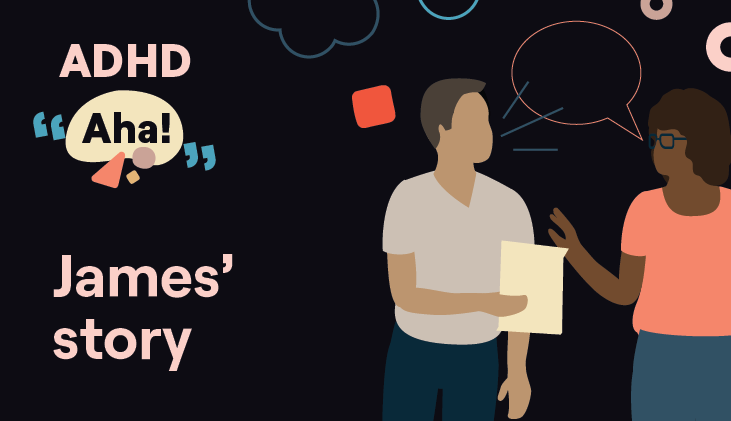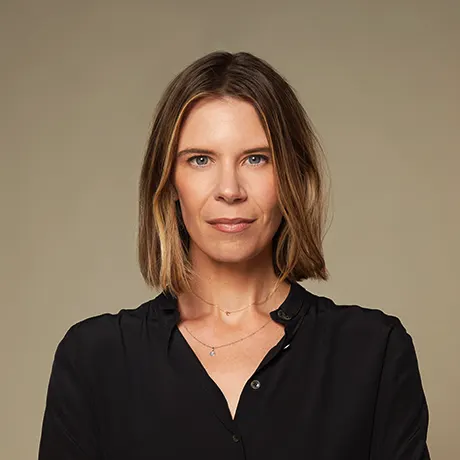Stay in the know
All our latest podcasts delivered right to your inbox.
James Tai didn’t notice his son’s ADHD symptoms in preschool. But teachers did. They approached James and his then wife, which led to his son getting diagnosed with ADHD at age 4. Since then, James has faced an internal struggle that many parents of kids with ADHD face: where to draw the line between discipline and letting go.
James also talks about how being Asian American impacts his parenting. And he shares an incident on an airplane that awakened his deep empathy for his son.
Related resources
Episode transcript
James: As we boarded the plane, Roebling in his fit of excitement, just bolted towards his seat and was completely oblivious to a fellow passenger, a gentlemen who had just gotten done putting his luggage in the overhead compartment. And he spun around only to have Roebling whiz by him. And he took a step back, was startled, and in my attempts to defuse the situation in a very light and humorous way, I briefly mentioned that, oh, I apologize, you know, my son does what he wants to do. He runs the household. And then this gentleman's response was very derisive and quite sarcastic. And it was just, it was that moment where I wish everybody would understand. And that's not a judgment because, you know, I was one of those people before Roebling.
Laura: From the Understood Podcast Network, this is " ADHD Aha!,” a podcast where people share the moment when it finally clicked that they or someone they know has ADHD. My name is Laura Key. I'm the editorial director here at Understood. And as someone who's had my own ADHD "aha" moment, I'll be your host. I'm here today with James Tai. James is a beer consultant in the food and beverage industry. And he lives in New York city. Welcome, James.
James: Hi, Laura. Good to be here.
Laura: Tell me about your family and your son in particular.
James: I am divorced. Two children: an 11-year-old daughter, Landryn, and a 13-year-old son, Roebling. They're fantastic. They're based out of Westchester and they're just living their life, enjoying themselves.
Laura: And you live in New York City.
James: And I'm in New York. Yep. Downtown Manhattan.
Laura: And where are you from originally?
James: I was born in Taiwan. And when I was 4, my family and I moved to Toronto actually. And so we lived there for the earlier part of my childhood. Somewhere around 9 or 10, I moved to Southern California and pretty much spent the rest of my childhood there. So in many ways, I am a California kid.
Laura: And where does your son's name come from? Roebling, I love that name.
James: Yeah, I guess for all the New York City people and architecture fans, Roebling is actually named after John Roebling, who was the chief engineer of the Brooklyn Bridge.
Laura: I knew that rang a bell for some reason, I think, yeah, I wrote a story about the Brooklyn Bridge at one point. And it's such a cool name.
James: It's a really fantastic story. I think it really epitomizes New York City in many ways. And so my wife at the time and I, we really gravitated toward that story, and we just thought that Roebling was a really fitting name for our firstborn.
Laura: Tell me more about Roebling. He has ADHD, is that right?
James: That is correct. Yes. He was clinically diagnosed probably when he was about 4, and it's just a part of his existence. He's a wonderful kid. He's a bundle of energy. He's nearing 14 now. I think he's seeing the world in a different way, much as any of us did when we were adolescents entering that phase in our life. But just really, uh, still very innocent and still just very pure-hearted. And that's something that hopefully he holds onto for a little bit longer.
Laura: Yeah, that's beautiful. So diagnosed at 4. Tell me what led to his getting an evaluation. You know, it's not unheard of to be diagnosed at 4. It does probably sound a little early to some listeners.
James: Yeah. So at the time, Roebling was attending a pre-K program in the Lower East Side. And one of the administrators started noticing certain behaviors that might be indicative of ADHD. And she mentioned to my wife at the time and I that there might be a chance that he does have ADHD, and it might be a good idea for him to get diagnosed.
I guess my initial reaction was, well, I've heard of ADHD. I don't really know how it manifests itself in the world outside of maybe what I see on TV. And it could be overly dramaticized. Wasn't really sure. So it did catch me off guard. I didn't really think that was what was going on. My ex-wife, who actually works with kids — she works for the school system and so she has a much deeper breadth of knowledge into the subject than I do — she didn't thing Roebling was ADHD. And so I leaned on her and also a little bit of what my very cursory understanding of ADHD was.
And so it was very — it was enlightening in many ways to realize that this is what ADHD may look like, and this is how it manifests itself.
Laura: So your wife at the time, she did not think it was ADHD.
James: She didn't, no. Again, I took her lead on that, because I felt that she was — at least within the household — she was the expert.
Laura: And what did you think?
James: Again, this was all new to me. Certainly Roebling didn't, I guess, exhibit some of the behavior that one would naturally think of when they think of ADHD. And so, you know, it was hard for me to really digest that he did — not so much in any kind of potential, like stigmatized way. But just that it didn't really seem to fit into what my perception of ADHD was with how my son lived the world on a daily basis.
Laura: Tell me more about that. What wasn't lining up? What were you hearing from the preschool about symptoms or behavior that you weren't seeing, say, at home?
James: It was a lot of inability to kind of stay focused. Roebling would jump from activity to activity. He wouldn't really have any kind of, almost like a seeming purpose — that I know is really kind of funny to say for a 4-year-old, but that was kind of the observation that the administrator had.
And I just chalked up to childhood. I think back when I was about that age, and I imagined myself doing the same thing. And so that's why it was very hard for me to kind of reconcile that with it possibly being ADHD. But again, I don't really have that experience. And that was something that I couldn't see.
Laura: I have two children. One of my kids is 3, so roughly the same age as Roebling was when he got diagnosed. And, you know, at Understood, we have lists of symptoms at different ages. And when I looked down the list of symptoms, if I'm being honest, I say, well, that sounds a lot like a lot of kids that age: never slowing down, constant tantrums, needing constant direction, seeming all over the place. That doesn't mean ADHD diagnoses at that age aren't real. Preschoolers actually can get an ADHD diagnosis. It's a matter of degree.
How did the evaluation process go for you after you heard from the preschool? Did you go to a doctor? What did you do from there?
James: I believe we enrolled in some type of study that was hosted by NYU, or facilitated by NYU. And we had a representative come into our household on, I want to say about a weekly basis, just to examine and assess Roebling. And the determination after everything was done, that he indeed had ADHD.
Laura: So you got a lot of inside baseball information since.
James: So it was very unique experience for me. And, you know, I kind of have sympathy for a lot of people out there that are interacting with family members that might have it, but not have those resources. Because I think it was very helpful for me to have that level of expertise surround me, you know, on all levels, to be able to kind of better understand what was going on with my son.
Laura: And of those symptoms that I mentioned earlier, to what degree were you seeing any of them? I'll repeat them: never slowing down, constant tantrums, needing constant direction, seeming all over the place. Were you seeing that?
James: I was seeing that. And again, as I mentioned earlier, it didn't seem like anything outside the scope of what a normal child would engage in on a daily basis. But then when understanding it, you know, under the lens of ADHD, I think it's not that everything is a relief and you really understood, oh, well, I can really see this tantrum is not the same type of tantrum as some of his schoolmates, his constant need for direction and redirection, but that was something that was a lot more frequent than, let's say his cousin, who's three weeks younger than he is. So to be able to notice those things in direct contrast to other children his age, I think it was really telling when I was able to kind of understand that this was an accurate diagnosis, you know, which is ADHD.
Laura: It's really great that the teachers, when your son was that young, that they approached you and your wife at that time with that information.
James: Yeah, absolutely. I don't know where we would be if that didn't happen, because that diagnosis wouldn't have happened nearly as soon as it did without that conversation.
Laura: On this show, I have the opportunity to talk with all kinds of people and about those "aha" moments when they realize that they or someone they love, like a child, has ADHD. But that moment doesn't always come before the diagnosis. Right? Sometimes they get helped along to get to that diagnosis. And then it can take a few years after that diagnosis for it to really hit you. Like, oh, this is legit. It sounds like your "aha" moment came after — maybe even years after — the diagnosis.
James: It certainly did. You know, it fits right in to just what you said. That scenario, that's what happened with me. I didn't really see it — like truly see it — until like years afterwards. Not that it was something that was stigmatized, not that it was something that I wasn't embracing. But it was something that I just could not see on a day-to-day basis.
Laura: Tell me about the airplane.
James: Oh, yes. So this was early on, too. I want to say it was right around that age, you know, like somewhere between 8, 7, 8, 9. Again, I grew up in Southern California, and my parents still live there. And so we visit them on a frequent basis, you know, maybe once or twice a year.
One particular flight — and I remember this very vividly — Roebling, who's obviously very excited to see his grandparents and going to California for a multitude of different reasons, he ran to the back of the plane. And in the midst of rushing past there, there was a fellow passenger, a gentlemen who was putting his bags in the overhead compartments. And as he would have turning around and making himself comfortable, and to see Roebling rush past, right past him. He had to back up maybe a few inches, and it caught him obviously off guard. And as a parent, obviously it's my obligation to apologize. I kind of made a joke about it. Something along the lines of, well, I'm sorry. He kinda runs the household.
And his response was very derisive, quite sarcastic, and he just essentially repeated what I said. Oh, he runs the household. And at that point it really took all that I could to just hold my composure and not just lay out my entire situation and what it's like, and the difficulties of being a parent with an ADHD child. And I wish that you would understand this, but you obviously, you don't. You know, in many ways it's neither here nor there, rather insignificant in the grander scheme of things.
But I mean, that was a point where it really did hit home that well, sometimes, you know, these certain conditions that other people have, you can't see them. And it makes it much more challenging to be able to navigate some of these situations such as the one that I experienced in that airplane.
Laura: And you said, you know, in the grand scheme of things, it's not a big deal. It might be insignificant. And sure, for the quotidian nature of it, right, as a parent, who's been on a plane with their kids, like that's universal, right? The guilt that you feel, and your child is just quote unquote, bothering other people and you cringe. But this clearly stuck out in your mind for a reason.
James: It certainly did. Living in New York, I think counter to the stereotypes and the generalizations of New York City residents, we are very compassionate people. And we do understand that sometimes things happen. I think in the back of our heads, we do feel like, all right, well, there's gotta be a reason why this happened. We just don't know it. And I wish like that could be applied into the world of ADHD, where, you know, people would see certain things that happen. Like, look, there must be something that's going on. You know, we just have to give that person the benefit of the doubt. If that was my one wish, it would be that: that people would have that imparted on them.
Laura: That's so beautifully stated. And I share that wish with you.
James: I mean, truth be told, it does make me a more compassionate person as well. And I felt like that was kind of like a mantra that was with me even before Roebling. But, you know, I think it's much more front of mind being his parent.
Laura: Tell me about when Roebling was diagnosed. What feelings did you have as a parent?
James: Honestly, the reality is I was wondering, did I have anything to do with this? Did I contribute to this actually happening? My natural inclination was to go to my profession, which is also my passion, which is beer. It's like, well, was my habits in terms of what I did with beer — because obviously as a professional I have to consume beer, and I was really concerned — did that have an impact, you know, when conceiving Roebling. You know, your mind takes you to a lot of different places, you know, and it's not so much guilt, but it was — well actually that's not fair. You know, maybe it was a little bit of potential guilt. You know, it's like if I could have done something that was different, you know. And then I realized that's, you know, not only was it not the case, but that's neither here nor there, because it's not really about me. It's more about like what kind of support system I can provide Roebling. That was really where the focus lay once I got out of that very, very minor funk, you know, and just kind of like thinking through the assessment.
Laura: It sounds very common to me though, having spoken with so many parents of kids with ADHD. I remember one dad in particular, who's blogged for us before, speaking about the guilt that he felt because he, and he does have diagnosed ADHD, and we know that ADHD can be hereditary, right? But it's not a fault thing. It's not like — you didn't do anything to cause Roebling to have ADHD. It just, it makes sense to hear that you went through that. And not to be too dramatic about it, but there is a grieving process because you're grieving that things aren't maybe exactly as you had planned for them to be.
James: Yeah. I will say, getting back to the hereditary part, I think looking back at it, I can see that there are certain relatives on my mom's side, that if I looked a little bit deeper, it's like, yeah, there is a possibility if they were to be assessed that they might have ADHD.
Laura: Did you share with your parents that Roebling has ADHD?
James: Yes. Yeah. And it wasn't an immediate thing. I think there's a couple of hurdles still with everything that I just said about Roebling living in this day, where we have those resources. But I am of Asian American descent, you know? And so culturally, there is still a huge stigma around mental health. There's something about being quote unquote, not normal.
I don't know if it's so much stigmatized with my parents as it is that there was a possibility that they didn't believe that that was actually a thing. I've spoken to a lot of friends and colleagues and, you know, there are cultures that they're immersed in and they just say, well, there's no such thing as ADHD in my culture. It just doesn't exist. It's just a matter of discipline. And I have to kind of straddle that line. Like I know it's something that affects Roebling. And as a parent, there are times when I do feel like, well, am I letting this ADHD excuses his behavior? Or should I, you know, be a little bit more stern in terms of my parenting. That's a really difficult balance for me to find, to be honest with you.
But my point being that with my parents, it was one of those things where, well, I didn't know how to approach it for them to really validate it. So that kind of took a while.
Laura: That's a familiar trope that comes up a lot, especially in this day and age where the awareness of ADHD is growing so much. In this younger generation of kids we're able to spot signs, or others spot signs and they tell us, as it was in the case of Roebling. But I'm actually a little bit choked up in a way because I hear a lot of parents in my job talk about how maybe if I just disciplined a little bit more. Or maybe if I didn't excuse certain behaviors. And of course you go there, I mean, we're parents, we blame ourselves for everything, right? How do you manage that? How do you approach parenting with balancing those two sides of the coin? I want to be empathetic to my son who has this thing that's out of his control, but I also want to check all the boxes in terms of quote, unquote, good parenting and discipline.
James: As we both know as parents, there's no guidebook. We really don't know if we're doing the right thing. We'd like to think that we are because when it all comes down to it, we genuinely have our children's best interests in mind, at heart. And I guess the only proxy I go to is how did I act at my age? Roebling is very much like me in many ways. His personality is more like his mother, but I think that his worldview, as unique as it is, I think it shares a lot more similarities with mine. And so I use that as a determination. Well, if I was in this situation at let's say 13 years old. Am I trying to take advantage of the situation, knowing that I have like a softy dad, let's say? Or is it something that like, generally it's like outside of my control? And again, I've been given some tools, you know, on how to manage certain scenarios in certain situations, but it's just something that genuinely I cannot help at that given moment.
And so I use that as just — that's how I'm able to see is this a discipline thing? Is this a parenting thing? Or is this an ADHD thing that I've encountered with right now?
Laura: Yeah, it gets really blurry sometimes.
James: It is, yeah.
Laura: Are you a softie?
James: You know, I think I am. I think I've realized, yeah, I think my kids do walk all over me and I that's something, that's something I know. I admittedly have to do a better job of.
Laura: Growing up in your family, did you feel a pressure to be perfect? To make sure that you didn't stray outside of the norm?
James: Absolutely, yeah. You know, it's a very typical Asian American upbringing. And so it was very binary. It's either something that you're supposed to do or something that you should not be doing at all. And so that was definitely just a part of my existence. Like you do what your parents tell you to do. Your elders are always right. And so you followed their direction, and their direction usually entails you being absolutely perfect and not doing anything wrong. So that's, yeah. I would say so, I would say so.
And I am reactionary to that. And I think that goes into a little bit of, well, that's how my parents treated me, so I don't really want to do that to my kids. But I may have over-corrected in that regard a little bit. So I'm working on it.
Laura: What ADHD symptoms do you see most prevalent today? You said he's 14 years old now, right? How does ADHD impact him today and how does he cope with it?
James: I'll put it this way: When he was younger — and I'm talking about maybe just a couple of years ago — one of the biggest struggles that I had as a parent was getting him motivated for things that he had no interest in. That was a huge problem. And you know, one could talk about how important this is when you're an adult, how important of a life skill this is. You really need to understand this, you know, multiplication for instance. You need to understand it. That, luckily, is — that piece has subsided a little, but the impulsivity is still something that's tough. And he's a growing boy, which means he's physically bigger now. It also means that his voice is a lot louder than it used to be. And so he'll be prone to just short screaming bursts, you know, it's a manifestation of excitement or anger or joy, whatever it is, you know, but not really meeting the room so to speak. And that will just get the best of him. That's something that I want to work with him a little bit on. But again, I look at myself, and I exhibited some of that behavior too, you know. So sometimes it gets back to like, where is the discipline with just understanding his ADHD, if it is ADHD, that's a challenge even right now.
Laura: Was he impulsive in preschool?
James: He's always been impulsive. Yes. Yeah.
Laura: What examples of him being impulsive in preschool can you give me?
James: Hmm. The examples that I can think of right now revolve around candy. He has somewhat of a sweet tooth, as do I. So again, he's very much like his father. And I'll typically have like a bag of like gummy candy or like, you know, sour worms or something like that stashed away. And I'll come back to it, and it's completely gone — except for the wrapper. He'll leave the wrapper — kind enough to do so. And so it was things like that. And he did that with his sister, too, he'll steal his sister's candy. And that's the impulsivity. I think that epitomizes his impulsivity through the years more than anything else. That really sticks out.
Laura: Was he honest about it? If you asked him, did you eat all this candy?
James: Yeah. After a while he was. At the beginning he thought he could pull one over. But when you leave an empty bag of candy, it's hard to explain away.
Laura: What kinds of things is Roebling interested in?
James: I think a great thing is that he's shown an interest in the outdoors, nature. And that's very refreshing to me. And in a day and age of iPads and smartphones and, you know, online gaming, he talks about wanting to go fishing and camping and doing these things. I want to support that. I want to nurture that.
Laura: That sounds great. What strategies does he use to cope with his ADHD?
James: I think it's — I'll be honest. I think this is what I do as well. This is the one, I guess, mechanism I have in my toolbox, is you just take a deep breath and it's like, all right, well, there's a moment between deliberation and action, and you extend that moment and you say to yourself, well, what is the best course of action moving forward that yields the best possible consequences? Maybe it's seven nanoseconds, but I do see him catch himself and just assessing the situation and deciding is this something that I want to do? And I think it's just the repetition of the tools that he's been given and just taking a breath. And I think he's put them together into a composite that makes sense for him. He's doing well with that. And I'm hoping that's something that will stay with him.
Laura: That's wonderful that he has that awareness of his brain and can be mindful like that. As I mentioned, we work with so many experts and we know from them that those nanoseconds, as you describe it, between stimulus and reaction, that's especially hard for people with ADHD to harness.
James: Absolutely. I do have to give credit to his mother for that. She's just really instilled like the concept of let's do some breathing exercises, just take all the distractions away. Let's focus on this, and let's get back to what it is that we need to do as our next decision. And so I think he's condensed that a little bit, but I think the framework has been like instilled in him.
Laura: That's another great technique: removing distractions, focusing on the one thing at a time. I think it really is wonderful that you got this information and Roebling got this information about himself at such a young age. Because I'm listening to you speaking and I hear that he copes very well with his ADHD. I mean, take it from me. It takes a lot of time and practice. I mean, he sounds like he's better at taking that breath than I am in a lot of cases.
James: Than I am as well in certain situations. But yeah, it's very rewarding to see him grow in that way, man. Just where, it's like his actions don't really define who he is in a negative way, but it leads him to, I guess, maybe just enrich his character. It's a positive thing. It's very rewarding to see him taking those steps, to be able to kind of manage, not let some of the things that used to control his life do so anymore.
Laura: What would you say to people who say that ADHD isn't real? How would you react to that?
James: So I'll equate it — cause I like talking about the subject — I'll equate it to beer and my work in beer. And I think there's a lot of people who have like a deep passion for beer and they decided themselves, oh, well, there's a certain threshold that qualifies for a very good beer. Anything below that you know, is garbage. And so by extension, they come with the belief "All right. If you don't believe this, then you don't know what you're talking about." So taking that and overlapping that with ADHD. So for people that don't necessarily believe in ADHD, the least effective thing to do is to tell them that you're wrong. This is not correct. But you know, at the same time, I may not drink this beer, but I do like this one.
And so, well, you may not believe that there's ADHD, but you know, in my particular existence, in my life, I do have a son and I do see ADHD and all the symptoms and the struggles that he's had to deal with in life. So, you know, you may say that, but I will tell you that I do believe that there is ADHD, you know, and my son is proof of that.
Laura: I should let you speak for me when I encounter people. We should always equate everything to beer, by the way. I think every analogy should revolve around beer just in general.
James: I have no problem with that.
Laura: OK. We'll talk more after the show. What wonderful thing about Roebling do you think might be connected to him having ADHD?
James: His perspective on the world. It's just something I've never encountered. I feel like I've met a lot of people and a lot of personalities, but the way that he sees the world, it's so special and it's so endearing. And I don't think he would have that in him if he didn't have ADHD.
But when we look at the question that's presented in front of us, he has a very unique way of interpreting that question and reading it an entirely different way, which is — it's fun sometimes. And it's eye-opening because, oh, well, you know what, there is that perspective too.
And I just I'm locked into understanding the world in my way. And thank you, Roebling. Thank you for introducing me to this other alternative, which is equally valid, very creative, and something that I, again, coming from him, I just, I'm just so proud of him in the way that he thinks about the world. It's just really fun.
I have an older sister who lives in Boston, and one of her favorite things to do whenever I see her, she's all like, can you tell me another Roebling story? You know? And it usually revolves around him interpreting the world in his own very special, unique way.
Laura: Can I hear a Roebling story?
James: I mean, the one that I think of it, that just happened very recently: I had to go to Larchmont. I had to pick up a suit that I had kept there. I had to use it for a specific event. And he was under the impression that suit was his. I'm like no, Roebling. Roebling, I do have suits that are for you. I have them in the apartment, but when you're ready for them, we'll bring them out and, you know, and we'll, we'll get you fitted and tailored for it and everything.
And his immediate response to that is "Yeah, Dad, I don't want to go to the prom though." And it was just a very innocent, endearing way to look at the world. And I think that's just indicative of Roebling, yeah. I mean, I love him so much or for that.
Laura: I can tell. And I can see why really I've heard you a few times throughout the course of this interview, dealing with that internal "Am I parenting OK? Am I disciplining enough? Or is this the ADHD? Is this not the ADHD?" And I don't know you that well, but I can say just from sitting here, listening to you, that whatever you're doing, I mean, you made good choices.
James: I appreciate that. I genuinely do, thank you.
Laura: I mean, it's really beautiful to hear you talk about Roebling. That's wonderful. Oh, I'm getting a little teary, actually. It's the mom and me. James, thanks so much for being here today.
James: Laura, sincere pleasure. Thank you so much.
Laura: You've been listening to "ADHD Aha," from the Understood Podcast Network. You can listen and subscribe to "ADHD Aha" on Apple, Spotify, or anywhere you get your podcasts. And if you like what you heard today, tell someone about the show. We rely on listeners like you to reach and support more people. And if you want to share your own "aha" moment, email us at ADHDAha@understood.org. I'd love to hear from you. You can go to u.org/ADHDAha to find details on each episode and related resources. That's the letter U, as in Understood, dot O R G, slash ADHD Aha.
Understood is a nonprofit and social impact organization. We have no affiliation with pharmaceutical companies. Learn more at understood.org/mission. "ADHD Aha" is produced by Jessamine Molli. Say hi, Jessamine.
Jessamine: Hi, everyone.
Laura: Justin D. Wright created our music. Seth Melnick and Briana Berry are our production directors. Scott Cocchiere is our creative director. And I'm your host, Laura Key, editorial director at Understood. Thanks so much for listening.
Host
Latest episodes

April 16, 2024
ADHD coach Jaye Lin was a gifted kid with undiagnosed ADHD. Now, she’s building communities and helping others cope with ADHD burnout.

April 2, 2024
Writer Paulette Perhach had money coming in but struggled to keep it in her bank account. An ADHD diagnosis brought her struggles into perspective.
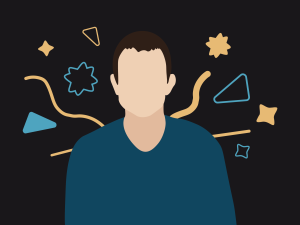
March 19, 2024
Eye to Eye founder David Flink is fighting the “just try harder” myth surrounding ADHD, dyslexia, and other learning and thinking differences.
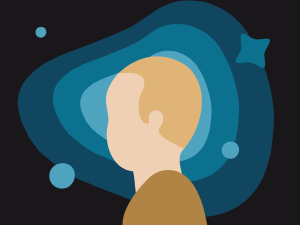
March 5, 2024
Peter Jones used to feel better saying he had a hearing problem rather than considering ADHD. Now, he knows he has ADHD and isn't afraid to say it.

February 20, 2024
Before her ADHD diagnosis, ADHD coach Emily Weinberg thought she was just lazy. But in reality she was stuck in “analysis paralysis.”
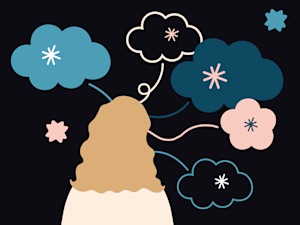
Carol Blumenstein was called an unteachable student. Now, she knows she has ADHD and dyslexia, and supports her five kids who learn differently, too.

January 23, 2024
Executive coach, actor, and former criminal defense attorney Ernest Anemone shares his ADHD story — and why he questions the term “attention deficit.”
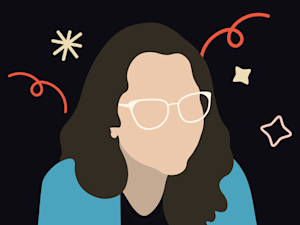
January 9, 2024
ADHD and post-traumatic stress disorder (PTSD) symptoms can look similar. And they can morph into what Hannah calls “a trauma ball of blame.”
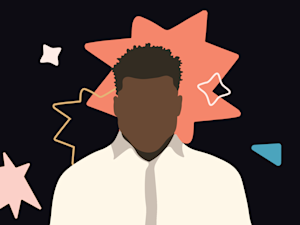
December 26, 2023
Livingston Steele was diagnosed with ADHD about a year into working at Understood.org. His experience and work have given him immense empathy for people with ADHD.
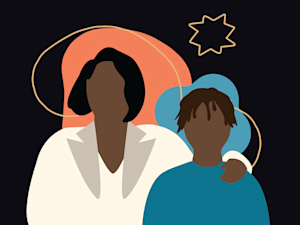
December 12, 2023
Wendy Zanders is a decluttering coach with ADHD. Find out how she got into organizing, and get a few tips for yourself.
